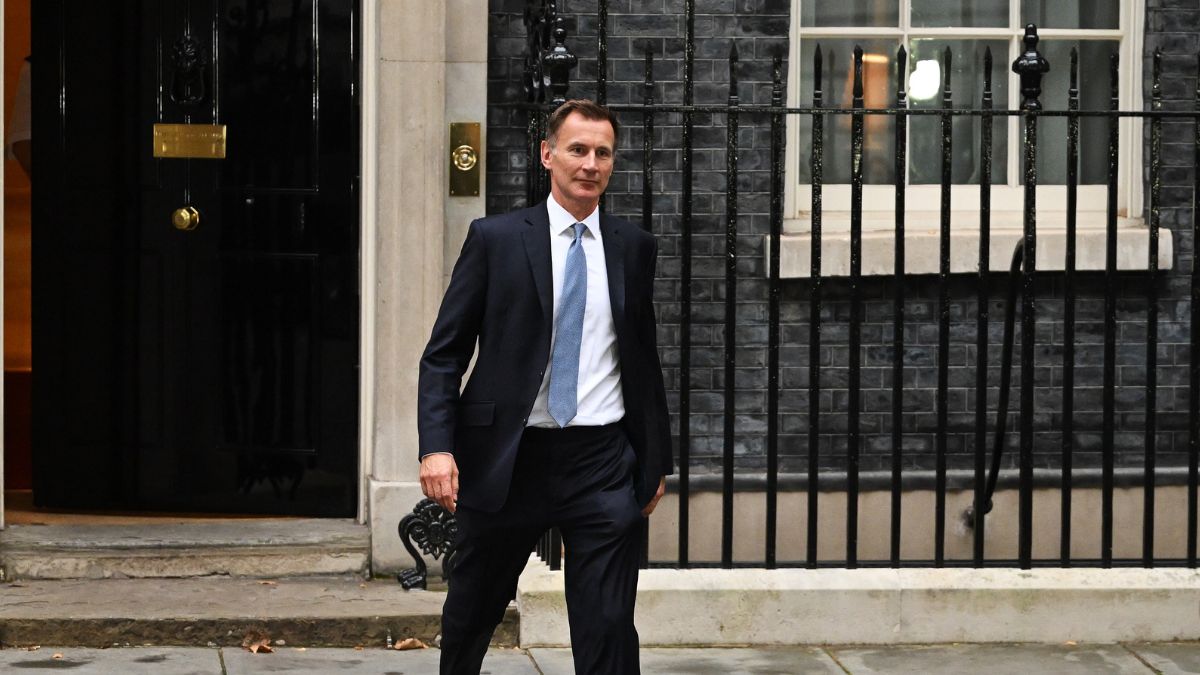
Merely three days after Jeremy Hunt was hoisted from the backbenches and given the position of chancellor of the exchequer, his first actions have been to reverse many of the spending commitments made by his predecessor Kwasi Kwarteng.
In a five-minute statement this morning, Hunt outlined several measures being brought forward from the Medium-Term Fiscal Plan in an effort to calm volatile markets. This included reversing the proposed cut to income tax, limiting the energy price guarantee to April and a return of the planned rise in corporation tax, which is once again due to rise from 19% to 25% in April next year.
This U-turn on the government’s economic plans was deemed to be “necessary for economic stability”, according to the new chancellor, after Kwarteng’s previous mini-budget announcement triggered a plunge in the value of the pound, a rise in interest rates and required a £65bn intervention from the Bank of England.
The business community largely welcomed the spending commitments outlined in last month’s mini budget, with Confederation of British Industry director general Tony Danker describing it as a “turning point for our economy”.
But the economy swiftly turned in the opposite direction to that desired by Danker. Rather than the growth that businesses were promised, the International Monetary Fund warned that inflation will last longer in the UK than in almost all other advanced economies.
The aim of Hunt and prime minister Liz Truss is that today’s reversal of the previously announced unfunded tax cuts will provide some damage limitation. Although the Institute for Fiscal Studies sees them as “steps in the right direction”, it warns: “Today’s announcements won’t be enough, by themselves, to plug the gap in the government’s fiscal plans. Nor will they be enough to undo the damage caused by the debacle of the last few weeks.”
A mixed bag for business
Responding to the chancellor’s emergency statement, Institute of Directors (IoD) chief economist Kitty Ussher welcomed the attempt to restore stability and confidence in the UK economy.
She adds: “The number one negative issue for our members’ businesses at the moment is UK economic conditions. Confidence is also extremely low, which in turn causes businesses to invest less, constraining growth further.”
The IoD was also “relieved” to see the reversal of employers’ national insurance contributions will still proceed as planned, according to Ussher, after its members informed the institute that “it only added to the supply-side pressures they were experiencing”. National insurance contributions increased by 1.25% for both employees and employers in April but this rise will now be scrapped.
While many will welcome these reversals, businesses will count the cost of further uncertainty
Meanwhile, the CBI pledged that business will work with the chancellor “on an affordable plan for sustainable economic growth that drives investment and supports living standards”.
The Federation of Small Businesses (FSB) – which previously stated that Kwarteng’s mini budget had set the Truss government “off to a flying start” – was critical of the “chopping and changing” which has made it difficult for businesses to plan and invest.
Its national chair Martin McTague welcomed the continued commitment to protect small businesses through the energy support package and the reversal of the hike in national insurance. But he criticised the decision to call off changes to IR35 and the fact that those paid through dividends won’t benefit from the reduction in national insurance – changes which he claims will hit entrepreneurs hardest.
McTague adds: “There are significant recessionary pressures causing severe problems for small firms and the people who work for them – while the chancellor has focused on reassuring markets today, the government must combine this with pro-growth measures that support the real economy.”
The decision to reduce the length of the energy price guarantee, which was originally planned to be in place for two years, may also have steep consequences for businesses. Many could now face a sharp rise in energy bills in April, if wholesale prices don’t come down.
Elsewhere, Paul Barnes, chief executive of the Association of International Retail, described the government’s decision to scrap the reintroduction of VAT-free shopping for tourists as a “hammer blow” for British retailers.
What do business leaders make of the policy changes?
For Atul Bhakta, CEO of logistics company One World Express, the uncertainty of the past few months has meant some of the biggest issues affecting businesses have been overlooked. He says: “While many will welcome these reversals, businesses will count the cost of further uncertainty.
“From calculating national insurance bills, through to planning for corporation tax rises, these about-face turns leave business leaders unable to plan financially, and this governmental flip-flopping delays the point at which we actually tackle the issues affecting growth, trade and productivity.”
Mohsin Rashid, co-founder of rewards app ZipZero, has a similar analysis of events and claims that the constant changes have meant that businesses “simply don’t know which way to look”.
He adds: “There is simply no way to plan, invest or, indeed, grow in an age of 24-hour policies. During the long three months of the leadership election, both businesses and the public were told to patiently await stability and security. We are still waiting.”
A survey of business leaders, conducted at the end of last month by technology company Velocity Smart after Kwarteng’s mini budget, found that more than half (51%) were either unsure or do not believe the policies proposed by Truss will help the UK avoid a recession. The prime minister, alongside her new chancellor, will hope that the changes made today will improve their confidence and that of the markets.
